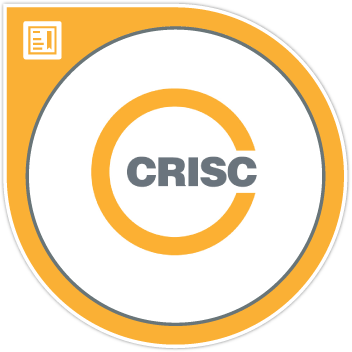 Read more here
Read more here

CRISC Certification Training
DATE
Yet to be Determind
LOCATION
Accra
Why Attend?
CRISC Certification Training
 Course Objectives
Course Objectives
-
This Course Objective Hasn't Been Provided Yet
 Target Audience
Target Audience
Individuals who are looking to build a greater understanding of the impact of IT risk and how it relates to their organization.
Governance
Organizational Governance A
- · Organizational strategy, goals and objectives
- · Organizational structure, roles and responsibilities
- · Organizational culture
- · Policies and standards
- · Business processes
- ·Organizational assets
Risk Governance B
- · Enterprise risk management and risk management framework
- · Three lines of defense
- · Risk profile
- · Risk appetite and risk tolerance
- · Legal, regulatory and contractual requirements
- · Professional ethics of risk management
IT Risk Assessment
IT Risk Identification A
- · Risk events (e.g., contributing conditions, loss result)
- · Threat modeling and threat landscape
- · Vulnerability and control deficiency analysis (e.g., root cause analysis)
- · Risk scenario development
IT Risk Analysis and Evaluation B
- · Risk assessment concepts, standards and frameworks
- · Risk register
- · Risk analysis methodologies
- · Business impact analysis
- · Inherent and residual risk
Risk Response and Reporting
Risk Response A
- · Risk treatment/risk response options
- · Risk and control ownership
- · Third-party risk management
- · Issue, finding and exception management
- · Management of emerging risk
Control Design and Implementation B
- · Control types, standards and frameworks
- · Control design, selection and analysis
- · Control implementation
- · Control testing and effectiveness evaluation
Risk Monitoring and Reporting C
- · Risk treatment plans
- · Data collection, aggregation, analysis and validation
- · Risk and control monitoring techniques
- · Risk and control reporting techniques (heatmap, scorecards and dashboards)
- · Key performance indicators
- · Key risk indicators (KRIs)
- · Key control indicators (KCIs)
Information Technology and Security
Information Technology Principles A
- · Enterprise architecture
- · IT operations management (e.g., change management, IT assets, problems and incidents)
- · Project management
- · Disaster recovery management (DRM)
- · Data lifecycle management
- · System development life cycle (SDLC)
- · Emerging technologies
Information Security Principles B
- · Information security concepts, frameworks and standards
- · Information security awareness training
- · Business continuity management
- · Data privacy and data protection principles

Join Our Community